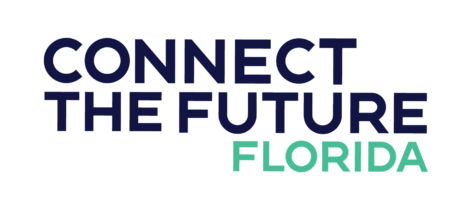Connect the Future Florida Joins Roundtable Discussion on the Path Forward to Expand Broadband Access
More than $10 billion has been invested in Florida over the past decade to expand broadband infrastructure, ranking the state among the top 5 in the nation for broadband availability. Yet over 804,000 Floridians still lack access to the internet – many of them in rural communities. In fact, 20 percent of Florida’s rural population remain without access to a broadband connection.
At a recent roundtable discussion, State Representative Josie Tomkow (R-District 39), former Federal Communications Commission (FCC) Commissioner Michael O’Rielly, Americans for Tax Reform President Grover Norquist, Vice President of Policy at the James Madison Institute Sal Nuzzo, and Connect the Future Executive Director Zachary Cikanek highlighted existing barriers to broadband expansion in the state and potential legislative solutions aimed at expanding broadband access to all Floridians. As Commissioner O’Rielly noted, this past year has only magnified the importance of broadband connectivity: “The pandemic has highlighted all of the things that the internet and broadband can do for Americans and the benefits it brings,” especially for work, education, and commerce.
Below are two key takeaways from the virtual event:
Takeaway #1: With the government’s support, the private sector is best positioned to expand broadband access to currently unserved areas.
The panelists agreed that the private sector is best situated to expand Florida’s broadband infrastructure to reach more unserved communities. However, they noted that high sales taxes on the intermediate goods needed to build out broadband infrastructure currently impede increased investments. Because these taxes significantly delay and limit the private capital available for the expansion of broadband infrastructure within the state, their removal could spur an immediate increase in private investment. As Grover Norquist stated, “It would be a tax cut that significantly lower the costs of getting broadband out…it would be easier to do more of it [broadband build-out], and it would be easier for people to afford it.”
Takeaway #2: Legislative solutions are needed to address broadband expansion.
As Commissioner O’Rielly stated, there is “a need to reform communications laws to lower the burden on private providers and remove current obstacles to deployment today like pole attachments.” He agreed with others on the panel that the process of attaching to poles involves “outrageous” costs and unfair burdens on new attachers. Connect the Future’s Zach Cikanek emphasized this point by noting that utility poles are the backbone of rural communications networks and that any barriers to accessing these poles inhibit further broadband buildout.
To address the need for expanded rural broadband access, Rep. Tomkow has introduced House Bill 1239 which requires that access to and use of municipal utility poles by broadband service providers be reformed to explicitly follow existing federal laws and regulations. The bill would also exempt from sales and use taxes certain equipment purchased, leased, or sold by providers of internet access services to further incentivize the buildout of broadband infrastructure.
House Bill 1239 – together with Senate Bill 1592, sponsored by Sen. Danny Burgess – will encourage investment in expanding broadband deployment throughout Florida, and help to connect more of Florida’s small and rural communities.
